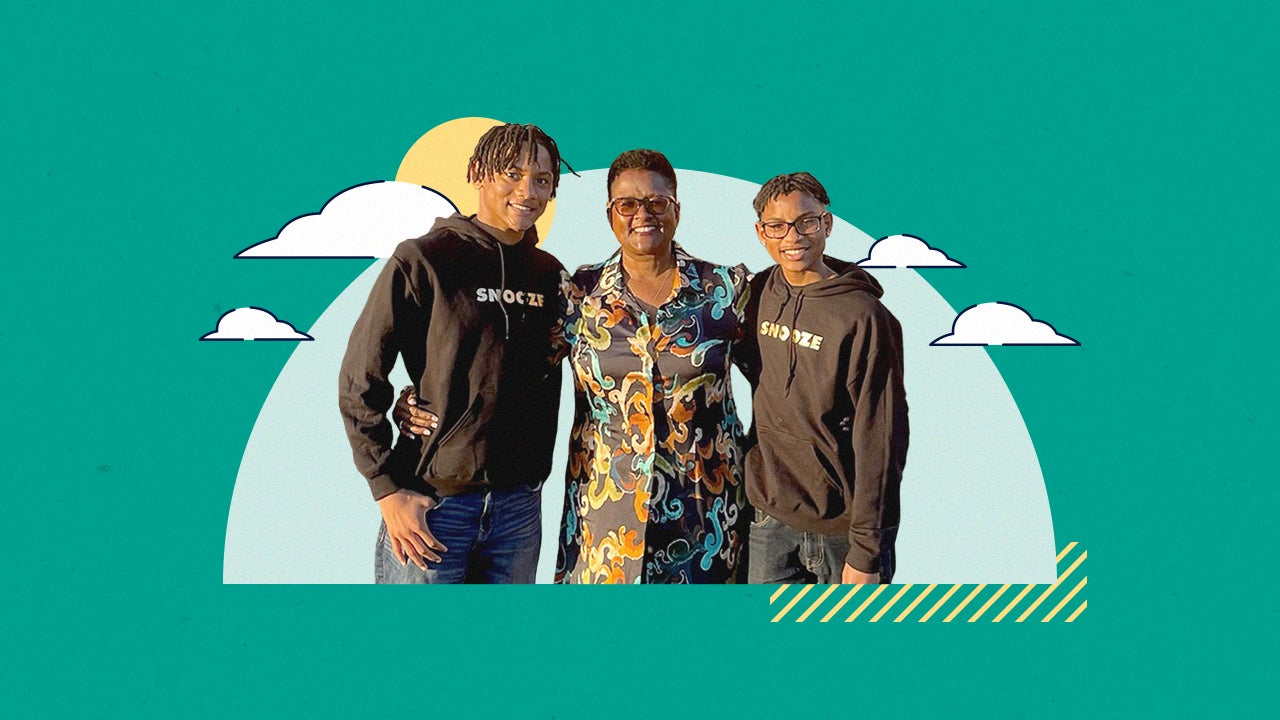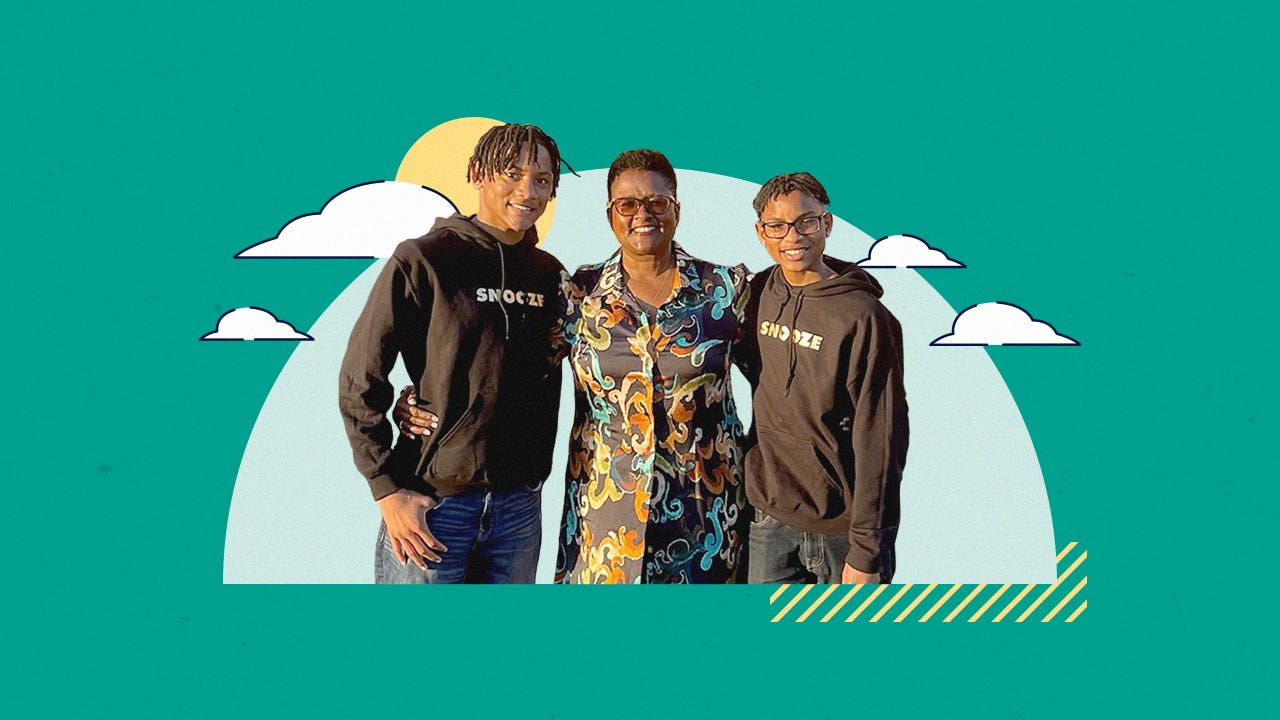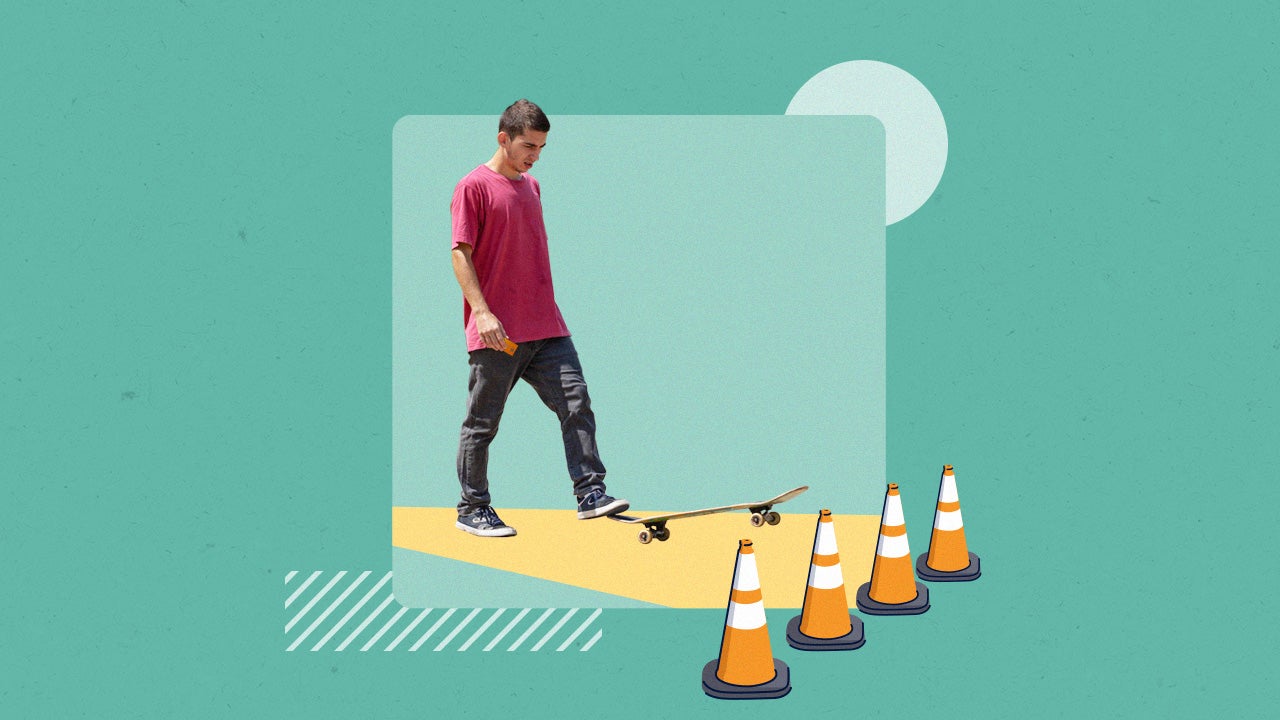She was a retired teacher with $43,000 of debt. Here’s how National Debt Relief helped her



A former licensed speech pathologist, teacher and current singer in the St. Louis Symphony Orchestra IN UNISON chorus, Angelic leads a full life even in retirement. The daughter, mother and sister of United States veterans, she’s always leaned on and leaned into her community to lend support and share her life experiences of traveling and ministry.
It wasn’t always this way. Only three years ago, Angelic was in over $40,000 of debt. With debt collectors calling every day, her retirement dreams of security, travel and spending time with her beloved grandchildren hung in the air.
“That was an overwhelmingly dark place for us,” Angelic said. “I didn’t know if I was gonna make it out. It was a very difficult time.”
All that changed when Angelic clicked on an online ad promising relief for those in debt. With one phone call, she was in contact with National Debt Relief – and on the path to a better financial future. Here’s what Angelic had to say about her experience.
What were the circumstances that contributed to your debt situation?
Both my husband and I had debt. I signed up for credit cards when I was in college to help pay for gas and work clothes, and for a while, my debt got away from me. When I started making more money after I graduated, it felt under control. I would make minimum payments, and it was manageable.
When COVID came, my husband and I were in a dark place. My husband was diagnosed with cancer and started his treatment. My father was diagnosed with Alzheimer’s. My mother passed in February 2020, and my father-in-law passed away in 2021. My brother was diagnosed with sarcoidosis of the liver. I was also doing remote teaching, and I had all these parents leaning on me. I had all these bills, and I didn’t know if I was going to make it out.
When I retired, I wasn’t able to make the minimum payments anymore. I didn’t realize my debt was a burden until then.
How did you feel about your debt? How did it impact your day-to-day life?
I was in a dark place. I couldn’t go to counseling because of the pandemic. I was worried about my relationship with my husband because of our finances. I had collectors calling me up every day, threatening to take our home. I was having problems with my husband with the finances, and that sort of thing can cause divorce.
When I was going through that, I started taking “carcations” – I would get in my car and drive and listen to music or audiobooks. I once drove all the way from St. Louis to Chicago and didn’t realize it!
How did you find out about National Debt Relief?
Do you remember the highs and lows of your life? I remember I was on the computer when I was in that dark place with debt. I saw an ad pop up with a red, white and blue shield, and it said, “If you’re in crisis, we’re here to help you.”
I called the number on the ad, and a woman picked up the phone, and I said: “I need help.”
At the time, I had nobody to talk to, and I couldn’t hold myself together. I was shaken. I felt like this may be the answer to one of the things I’m going through, and I just needed to talk to someone and just get it out. I told her everything I was going through – my debt, my retirement, my mother dying, the bills, losing the house – and she said, “Calm down. We can help you.”
I told the specialist on the phone I was in over $43,000 in debt, and that I didn’t want to consolidate bills or file bankruptcy – I wanted to pay off my debt. She affirmed me and explained how the program worked.
That was back in 2021 and the beginning of the rest of my life financially.
What was the debt relief process like? How did you feel about it throughout?
The specialist on the phone guided me through the application and answered all my questions. I told her I could pull from my retirement account and take on extra jobs to pay – and she said, “We’ll take whatever you’re willing to pay.”
I thought it might be like consolidation at first, where they give you a payment amount you have to meet. Instead, National Debt Relief worked with me to figure out a payment plan I could afford..
So every month, I would take on substitute teaching jobs – they needed substitutes then – and every month, National Debt Relief would call me and see how I was doing: how much I could pay, how much was in my account, everything. They were so aware of what I was going through. They would ask me about my life, about what I did before I got into debt, what my plans were.
Meanwhile, they negotiated my debt down so I could pay it off with what I was sending.
They told me I should stop answering all those creditor calls. I turned over the numbers of the debt collectors, and National Debt Relief took over. “It’s our debt now,” they told me. “We’re going to take care of it. We’re taking that burden away.” And I felt like everything was going to be alright.
Once I made a few payments, we settled on an amount I would pay each month. If I was ever short – sometimes I couldn’t get enough substitute hours – I called them up and let them know, and they contacted my creditor and took care of it.
I paid off my debt for a number of months – three years – and, before I knew it, I got an email. “You’re graduating in two months,” it said. And I was like, what? I wasn’t even paying attention to it – I just made my payments, and I stopped worrying.
What happened after you graduated from the program?
Since I was making payments into the savings account and not to my creditors, my score dropped. At the time, I was okay with this. We owned our house, and I was retired.
When I signed up, they asked me what I enjoyed doing and what my goals were, and I had mentioned how I wanted to travel to do ministry work in the future.
They told me, “If you want to travel, you need a credit card for hotels and rental cars.” And they were right! So they helped me fix my credit score.
National Debt Relief paired me with a company called Reach Financial, which is one of the partners they work with. Reach helped me take out a small loan and pay it off with the monthly payment I was already making toward my debt.
That’s what I’m doing now. I knew my credit score was going up when I started getting all these card offers in the mail! Now I have some low-limit cards that I use for medicine and for Amazon – I get rewards, and I pay off the balance every month.
How did National Debt Relief change your relationship with money and debt?
I have much, much better control of my debt because of National Debt Relief. It’s the most control I’ve had in my entire life. Now I know how to use my credit cards, and I know I can pay off the balance at the end of each month. I’ve never had that before.
When I was in college, I used to apply for credit cards because I thought if they sent the application to me, it meant I could pay it off. I was naive and young, and I let my debt get away from me.
Now I’m really thinking about my money. I’m in control of my finances, and I have a new lease on life. I have the freedom to travel. I have the money and the resources – I can use my credit cards to get a hotel, and I know I can pay it off. I can choose between substitute teaching and volunteering for my church.
How has your life changed after going through National Debt Relief’s program?
Even when I was going through the program, I stopped worrying about my debt. The burden was gone. My husband wasn’t pressuring me, I was moving on with my life, because it was all taken care of.
I was able to audition for the St. Louis Symphony Orchestra IN UNISON program. I started my doctorate of ministry. I was thinking about the books I was going to write. Basically, I was able to do everything that I wanted to do in my retirement.
I’m going to be traveling with my ministry this year – in October this year, we’re going to Ghana, and in the future, we’re planning on going to South Africa.
What advice would you give to someone in a situation like yours?
Reach out. Reach out to your friends, your family, your church, your community. You must reach out to the people that care about you and love you to help you with that emotional piece. When you’re in that kind of debt, and you’re in that kind of dark place, you need to talk to someone.
And you’ve got to talk to someone about your finances. If you’re in my kind of situation, from the bottom of my heart, I recommend National Debt Relief. They help you through your debt, and they help you so you’re not alone.
How National Debt Relief helped Angelic
Angelic began National Debt Relief’s program with $43,114 in total debt. With a monthly payment of $813, she was able to pay off her balance in 44 months with fees already included in her payments. She had a payment she could comfortably afford – while still enjoying the retirement activities she’d planned for.
In only three years, Angelic could pay off her balance in full, saving 27 percent on her debt. Now on the path to restoring her credit, Angelic is looking forward to the rest of her future.
“I’m absolutely taking it one day at a time because tomorrow is not promised to any of us,” she said. “But I’m on the other side now. I’m on the other side, and I’m thankful for that.”
Why we ask for feedback Your feedback helps us improve our content and services. It takes less than a minute to complete.
Your responses are anonymous and will only be used for improving our website.





